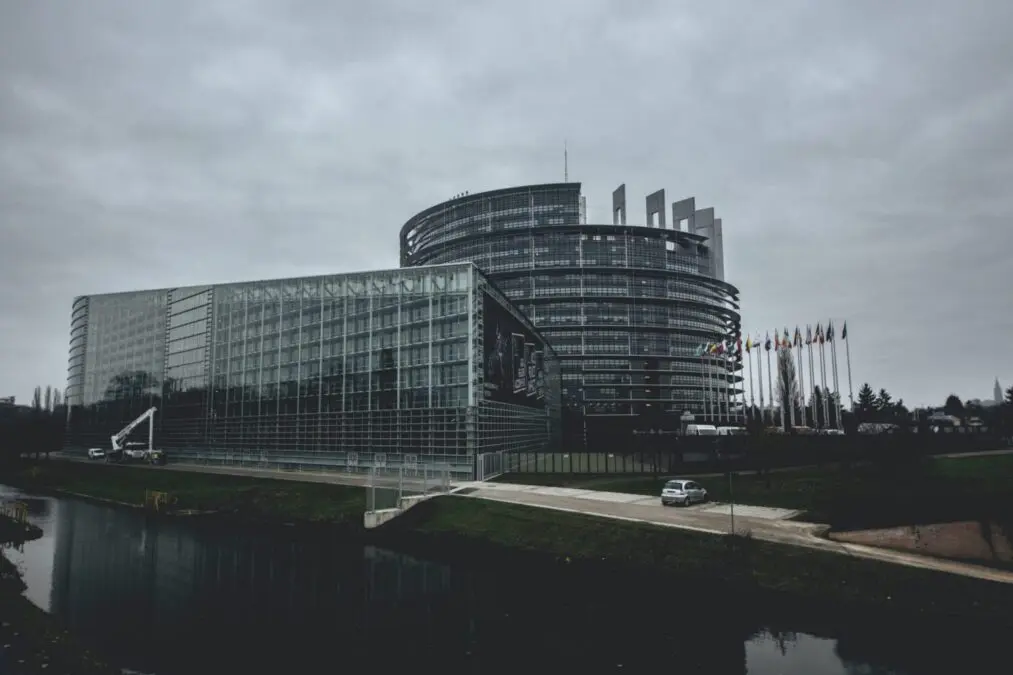The European Commission announced today that it is taking Bulgaria to court in three cases – for clean vehicles, for the electronic toll service and for the marketing of natural mineral and spring waters.
Clean vehicles
Brussels has decided to file a claim against Bulgaria before the Court of the European Union because the authorities in Sofia have not translated into national laws and regulations (the so-called non-transposition) the rules for clean vehicles.
The Clean Vehicles Directive sets national public procurement targets for clean vehicles.
This applies in particular to city buses, where public procurement accounts for around 70% of the market.
In the case of Bulgaria, the directive requires at least 17.6% of all light commercial vehicles, 7% of all trucks and 34% of all city buses bought between August 2, 2021 and December 31, 2025 to be clean vehicles, and at least 17% of all city buses bought in the same period to have zero exhaust emissions.
The directive also covers leasing, rental and financial leasing of vehicles, as well as contracts for certain services such as:
• public road transport
• specialized services for road transport of passengers,
• non-scheduled land passenger transport,
• specific postal and parcel services
• household waste collection.
It aims to further improve the air quality in municipalities and extend the life cycle of products (according to the principles of the circular economy).
The first reference period for reporting what has been achieved at the national level is after two years – in 2025, and the second is in 2030. Bulgaria has not yet introduced the directive into its legislation.
The deadline for transposing the directive was August 2021. The Commission sent an official notification letter to Bulgaria in September 2021 and a reasoned opinion in April 2022 (two of the three steps in a criminal procedure – note ed.)
As Bulgaria continues to violate the directive, the Commission has now decided to take the third and final step and refer the case to the Court of Justice of the EU.
Electronic toll service
The European Commission has decided to file a lawsuit against Bulgaria and Poland for not transposing the rules for electronic road tolling into national legislation.
The European Electronic Road Tolling Service (EETS) is a charging system where, once fully implemented, road users in the EU can pay tolls with one subscription contract, have one service provider and one on-board device, which covers all member states.
The Directive has two objectives: to ensure the interoperability of electronic road tolling systems and to facilitate the cross-border exchange of information on non-payment of tolls.
Significant differences in the technical specifications of electronic road charging systems could hinder the achievement of interoperability of electronic road charging across the EU and harm the efficiency of transport operations, the cost-effectiveness of road charging systems and the achievement of transport objectives. policy, notes the European Commission.
The lack of transposition of these rules is therefore an obstacle to the interoperability of Member States’ electronic road tolling systems and to the cross-border enforcement of the obligation to pay road tolls in the EU.
This means that drivers may be required to have more than one subscription contract, provider and on-board device in order to drive to or through Bulgaria and Poland. Problems could also arise in the collection of tolls for non-resident offenders, as well as for drivers from these countries in other Member States.
The deadline for transposing this directive expired on 19 October 2021. The Commission started the infringement procedures against these Member States in November 2021 and decided to send reasoned opinions in May 2022. As they continue to breach their obligation to transpose the directive , the Commission decided to refer the cases to the Court of Justice of the EU.
Water trade
The European Commission has also decided to file a claim against Bulgaria before the Court of Justice of the EU for improper application of EU rules on the exploitation and marketing of natural mineral waters.
The European Commission takes legal steps to guarantee consumers’ right to information, protect them from being misled and ensure fair trade.
According to Brussels, the Bulgarian legislation is not in line with the rules, as it does not prohibit the marketing under more than one commercial description, as required by the directive, of natural mineral and spring waters originating from the same source.
In addition, contrary to the rules, Bulgarian legislation does not require the name of the source to be indicated on the labels of mineral and spring waters. Bulgarian legislation allows also to use the designation “spring water” for water that does not meet the conditions for use of this term.
After sending a letter of formal notice in July 2020 and a reasoned opinion in September 2021, the Commission concluded that the infringements found had not been remedied.
Already in February of this year, the European Commission decided to file a claim before the Court of the European Union against Bulgaria and 10 other member states for not notifying it of the adoption of measures for the transposition of two directives in the field of copyright, the institution’s press service reported .
The European Commission has also decided to file a claim before the Court of Justice of the European Union against Bulgaria and three other member states because they have not introduced into their national legislation on open data and the reuse of data from the public sector.
Photo by Artur Roman:







